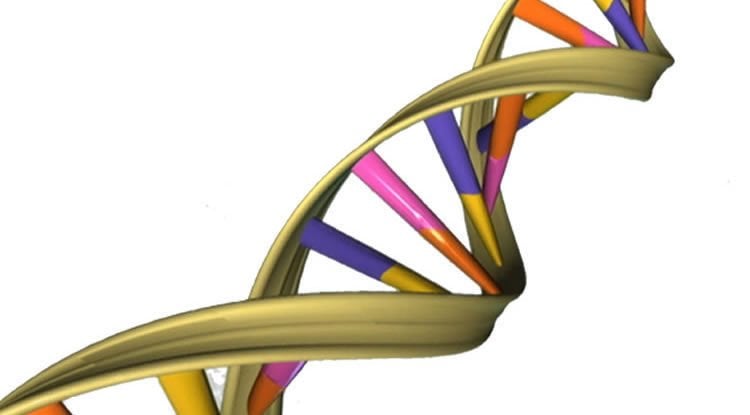Summary: A new mouse study reveals males recall fearful memories better than females. Researchers attribute the difference to the gene Cdk5, which has previously been implicated in creating fear memories and stress behaviors. The study reports Cdk5 is naturally activated in males, but not females.
Source: Elsevier.
In a mouse model of traumatic memory, male mice recall fear-related memories better than female mice, according to a study in Biological Psychiatry. The difference between sexes was attributed to a gene important for creating fear memories and stress behavior, called cyclin dependent kinase 5 (Cdk5), which was naturally activated in male but not in female mice. The findings could help explain why fear and stress-related disorders affect men and women differently.
Fear and memory produce changes to genes that modulate gene expression, called epigenetic modifications. Epigenetic activation of Cdk5 increased naturally in males, but not in females, after the mice recalled a fear-related memory. Artificial activation of Cdk5 had no effect in male mice, in which Cdk5 was already naturally increased, but reduced the strength of fear memories in female mice, indicating sex differences in how fear is remembered.
“There is growing evidence for sex differences in the neurobiology of fear. These differences may provide important new insights into novel sex-specific treatments for anxiety disorders,” said John Krystal, MD, Editor of Biological Psychiatry.
Although previous research had already shown that Cdk5 is activated by stress and regulates the strength of fear-related memories, it had only been studied in male mice. “We examined both sexes, and found male-specific epigenetic activation of Cdk5 expression after fear conditioning, a model of traumatic memory,” said senior author Elizabeth A. Heller, PhD, University of Pennsylvania.
Dr. Heller and colleagues then used epigenetic editing to artificially increase Cdk5 activation in the hippocampus, the brain’s memory hub. “Remarkably, this manipulation reduced fear memory retrieval and increased Tau phosphorylation in female, but not male mice,” said Dr. Heller. Phosphorylation of the protein tau by Cdk5 regulates learning and memory.

“Taken together, epigenetic editing uncovered a female-specific role of Cdk5 activation in repressing fear-induced memory,” said Dr. Heller. Cdk5 activation and tau phosphorylation have been shown to cause negative effects on learning and memory in female mice, but not male mice. The authors suggest that Cdk5 expression is naturally blocked in females to protect them from these negative effects.
The epigenetic differences in male and female mice indicate sex differences in the biology of how fearful events are remembered, which highlights that sex should be an important consideration in the research and treatment of neuropsychiatric diseases that involve fear and stress, such as posttraumatic stress disorder, depression, and anxiety.
Source: Rhiannon Bugno – Elsevier
Publisher: Organized by NeuroscienceNews.com.
Image Source: NeuroscienceNews.com image is in the public domain.
Original Research: Abstract for “Sex-Specific Regulation of Fear Memory by Targeted Epigenetic Editing of Cdk5” by Ajinkya S. Sase, Sonia I. Lombroso, Brandon A. Santhumayor, Rozalyn R. Wood, Carissa J. Lim, Rachael L. Neve, Elizabeth A. Heller in Biological Psychiatry. Published December 5 2018.
doi:10.1016/j.biopsych.2018.11.022
[cbtabs][cbtab title=”MLA”]Elsevier”Epigenetics Contributes to Male and Female Differences in Fear Memories.” NeuroscienceNews. NeuroscienceNews, 17 January 2019.
<https://neurosciencenews.com/epigenetics-fear-sex-differences-10565/>.[/cbtab][cbtab title=”APA”]Elsevier(2019, January 17). Epigenetics Contributes to Male and Female Differences in Fear Memories. NeuroscienceNews. Retrieved January 17, 2019 from https://neurosciencenews.com/epigenetics-fear-sex-differences-10565/[/cbtab][cbtab title=”Chicago”]Elsevier”Epigenetics Contributes to Male and Female Differences in Fear Memories.” https://neurosciencenews.com/epigenetics-fear-sex-differences-10565/ (accessed January 17, 2019).[/cbtab][/cbtabs]
Abstract
Sex-Specific Regulation of Fear Memory by Targeted Epigenetic Editing of Cdk5
Background
Sex differences in the expression and prevalence of trauma- and stress-related disorders have led to a growing interest in the sex-specific molecular and epigenetic mechanisms underlying these diseases. Cyclin-dependent kinase 5 (CDK5) is known to underlie both fear memory and stress behavior in male mice. Given our recent finding that targeted histone acetylation of Cdk5 regulates stress responsivity in male mice, we hypothesized that such a mechanism may be functionally relevant in female mice as well.
Methods
We applied epigenetic editing of Cdk5 in the hippocampus and examined the regulation of fear memory retrieval in male and female mice. Viral expression of zinc finger proteins targeting histone acetylation to the Cdk5 promoter was paired with a quantification of learning and memory of contextual fear conditioning, expression of CDK5, and enrichment of histone modifications of the Cdk5 gene.
Results
We found that male mice exhibit stronger long-term memory retrieval than do female mice, and this finding was associated with male-specific epigenetic activation of hippocampal Cdk5 expression. Sex differences in behavior and epigenetic regulation of Cdk5 occurred after long-term, but not short-term, fear memory retrieval. Finally, targeted histone acetylation of hippocampal Cdk5 promoter attenuated fear memory retrieval and increased tau phosphorylation in female but not male mice.
Conclusions
Epigenetic editing uncovered a female-specific role of Cdk5 activation in attenuating fear memory retrieval. This finding may be attributed to CDK5 mediated hyperphosphorylation of tau only in the female hippocampus. Sex-specific epigenetic regulation of Cdk5 may reflect differences in the effect of CDK5 on downstream target proteins that regulate memory.






